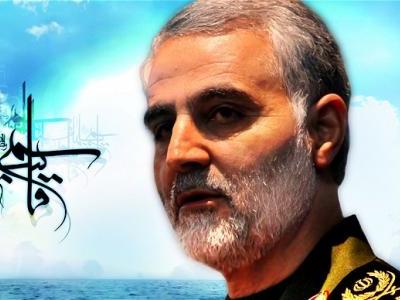Mon, 06/30/2014 - 22:02
Ignoring the Syrian side of the Sykes-Picot line
It was the start of the Muslim holy month of Ramadan and the current mother of all jihadist groups was just trying to make it easier for copy-editors in newsrooms across the world.
Al Qaeda in Iraq-turned-the “Islamic State in Iraq and the Levant” or “Islamic State in Iraq and al-Sham,” which makes it “Islamic State in Iraq and Syria,” no tweak that to “Greater Syria” – better known by the acronym ISIS or ISIL or both – was having none of it.
From now on, “the ‘Iraq and Sham’ in the name of the Islamic State is henceforth removed from all official deliberations and communications, and the official name is the Islamic State from the date of this declaration.”
“This declaration” was a 10-page statement – available in English, French, Russian, German and Turkish – released on Sunday, June 29, a very busy propaganda day for ISIS-turned-IS.
The day kicked off with the release of an ISIS video titled, “Kasr al-Hudud” – or “The Breaking of the Borders”. It was followed by a rash of audio, text and video statements, including a 15-minute English video clip titled, “The End of Sykes Picot,” featuring a P-cap-toting jihadist, identified as a Chilean, tromping along a part of the Iraq-Syria border now firmly under ISIS control.
There you have it: A Spanish-speaking South American native speaking English peppered with Arabic words – including a lexicon of sectarian hatred – stamping on the detritus of a border drawn up by British and French colonialists.
How’s that for a global aura? Or more to the point, how’s that for a multilingual, postcolonial, post-national, proto-caliphate jihadist message to beat all prior propaganda ploys?
The Sykes-Picot agreement was drawn up in secret almost a century ago between French diplomat François Georges-Picot and Briton Sir Mark Sykes around the time the colonial powers were hovering like vultures over the “sick man of Europe” – the Ottoman Empire.
But ISIS is not just sticking it into the colonial and postcolonial powers. It’s also plunging its sword into the heart of the post-9/11 jihadist power.
Remember last year, al Qaeda chief Ayman Zawahiri ordered ISIS chief Abu Bakr al-Baghdadi to stick to Iraq while the group Jabhat al-Nusra was declared the official Syrian al Qaeda branch. In effect, ISIS was driving home an implicit message that Zawahiri – and by extension, al Qaeda – were merely colonial stooges.
It’s déjà vu time on the airwaves
But while the one-day multimedia display may have surpassed previous jihadist records, the message itself was not new.
As I noted in the FRANCE 24 “The World This Week” show two weeks ago, when you fight an enemy, you need to know how the enemy thinks and works.
ISIS has long displayed scant regard for national borders. According to their latest messages, their so-called caliphate “covers the land” from the northern Syrian city of Aleppo to the Iraqi town of Diyala, near the Iranian border.
Unfortunately, ever since ISIS captured the international spotlight with the fall of Mosul, there has been an entirely successful move – particularly in the US media – to divorce Iraq from Syria.
But US media coverage of any damn country tends to focus on…the US. This time, the “Iraq crisis brought to you via Washington” has been ably aided by neocons on the right hammering on about President Barack Obama’s failure in Iraq.
On the other hand, liberals on the left have been intent on settling old scores, noting that the roots of the current crisis lie in Bush’s disastrous 2003 campaign.
Of course we can and should blame Bush and his band of neocons. As we speak, the USA’s once chosen (but now un-chosen) man in Iraq is trying against all odds to retain the prime minister’s post.
More than two months after the April 30 election, Iraq’s newly-elected parliament is holding its first session Tuesday. There will be the regular crush of backroom deals to choose the next prime minister in the next few days, and possibly weeks, to come.
This will spark a whole new series of airtime debates, which will include familiar old names, such as Ahmed Chalabi, cheerleader for the disastrous 2003 Iraq War, as he tries to mop up his war spoils and joins the lineup of likely Maliki replacements.
Iraq gets by with any old help it gets
Lost in the fog of politics and punditry once again is Syria. The real roots of the current crisis, the conflict we fiddled through while Damascus, Aleppo, Homs, Idlib, Raqaa and so many places in-between burned.
As we speak, all sorts of players are mucking around Iraq, countering the ISIS threat their own way while the defunct Iraqi administration welcomes any old help it can get.
Syrian warplanes strike ISIS targets inside Iraq? Maliki welcomes a hand from a fellow Shiite, President Bashar al-Assad.
Obama offers up to 300 military advisers? The more the merrier – you guys should never have left.
Iran’s Quds force commander Qassim Suleimani swings by to mastermind the defense of Baghdad? Phew! In good times and bad, we can always count on Iran.

Russia jets in five Sukhoi jets? Iraqi Deputy PM Hussain al-Shahristani doesn’t lose the opportunity to slap Washington’s wrist. “We told them [the US], ‘You once did an air bridge to send arms to your ally Israel, so why don’t you give us the contracted arms in time?’”
Why didn’t we give “the contracted arms in time” to the Syrian opposition instead of drawing and ignoring red lines, granting Assad his dream of jihadist, “terrorist” opposition that we can all crush and still sleep easy at night?
And then there’s still Syria
More importantly, so we all jump on the “bash ISIS” bandwagon. Iran gets in bed with the US. Moscow and Washington finally see eye-to-eye and press the reset button in Baghdad. Israel supports the Kurdish dream of a breakaway Kurdistan.
And then what?
And then there’ll still be Syria.
There’ll still be jihadist training camps on the western side of the Sykes-Picot line.
As we all know by now, ISIS views that border as a quaint vestige of a pre-ISIS past. The group is also so rich and organized, it has the means to wreak more havoc than the old al Qaeda camps in Taliban-controlled Afghanistan.
Do we take on ISIS in Syria – and join Assad’s forces? Or do we naively trust him to manage his side of the border? Remember how he allowed jihadist fighters to cross the border into Iraq before the US pullout to keep Bush occupied in Iraq and not extend his ridiculous “axis of evil” to Syria?
Meanwhile, on the eastern side of the Sykes-Picot line, when the motley crew of international military backers join forces to support the Iraqi army onslaught against ISIS, we had better watch the civilian toll from airstrikes.
We have to also monitor those Iraqi Shiite militia excesses. Tens of thousands of residents in ISIS-held parts of Iraq may have fled their homes, but there are also plenty of Sunni families who have elected to stay in places like Fallujah, Ramadi and Mosul. Many of these residents fear the Iraqi army operation in their towns and cities more than ISIS.
The mother of all jihadist groups is giving us ample clues of its strategic vision of the region. But we’re still tackling this crisis in a short-sighted way. Once again, we’re rushing into Iraq while ignoring the root of the problem – just like we did a decade ago, when we diverted resources from Afghanistan to chase phantoms in Iraq.
What is it about this land of the two rivers that makes us rush in like fools where angels fear to tread? I have a very real fear this time that ISIS or ISIL or IS or call it what you want will be having the last laugh.
Al Qaeda in Iraq-turned-the “Islamic State in Iraq and the Levant” or “Islamic State in Iraq and al-Sham,” which makes it “Islamic State in Iraq and Syria,” no tweak that to “Greater Syria” – better known by the acronym ISIS or ISIL or both – was having none of it.
From now on, “the ‘Iraq and Sham’ in the name of the Islamic State is henceforth removed from all official deliberations and communications, and the official name is the Islamic State from the date of this declaration.”
“This declaration” was a 10-page statement – available in English, French, Russian, German and Turkish – released on Sunday, June 29, a very busy propaganda day for ISIS-turned-IS.
The day kicked off with the release of an ISIS video titled, “Kasr al-Hudud” – or “The Breaking of the Borders”. It was followed by a rash of audio, text and video statements, including a 15-minute English video clip titled, “The End of Sykes Picot,” featuring a P-cap-toting jihadist, identified as a Chilean, tromping along a part of the Iraq-Syria border now firmly under ISIS control.
There you have it: A Spanish-speaking South American native speaking English peppered with Arabic words – including a lexicon of sectarian hatred – stamping on the detritus of a border drawn up by British and French colonialists.
How’s that for a global aura? Or more to the point, how’s that for a multilingual, postcolonial, post-national, proto-caliphate jihadist message to beat all prior propaganda ploys?
The Sykes-Picot agreement was drawn up in secret almost a century ago between French diplomat François Georges-Picot and Briton Sir Mark Sykes around the time the colonial powers were hovering like vultures over the “sick man of Europe” – the Ottoman Empire.
But ISIS is not just sticking it into the colonial and postcolonial powers. It’s also plunging its sword into the heart of the post-9/11 jihadist power.
Remember last year, al Qaeda chief Ayman Zawahiri ordered ISIS chief Abu Bakr al-Baghdadi to stick to Iraq while the group Jabhat al-Nusra was declared the official Syrian al Qaeda branch. In effect, ISIS was driving home an implicit message that Zawahiri – and by extension, al Qaeda – were merely colonial stooges.
It’s déjà vu time on the airwaves
But while the one-day multimedia display may have surpassed previous jihadist records, the message itself was not new.
As I noted in the FRANCE 24 “The World This Week” show two weeks ago, when you fight an enemy, you need to know how the enemy thinks and works.
ISIS has long displayed scant regard for national borders. According to their latest messages, their so-called caliphate “covers the land” from the northern Syrian city of Aleppo to the Iraqi town of Diyala, near the Iranian border.
Unfortunately, ever since ISIS captured the international spotlight with the fall of Mosul, there has been an entirely successful move – particularly in the US media – to divorce Iraq from Syria.
But US media coverage of any damn country tends to focus on…the US. This time, the “Iraq crisis brought to you via Washington” has been ably aided by neocons on the right hammering on about President Barack Obama’s failure in Iraq.
On the other hand, liberals on the left have been intent on settling old scores, noting that the roots of the current crisis lie in Bush’s disastrous 2003 campaign.
Of course we can and should blame Bush and his band of neocons. As we speak, the USA’s once chosen (but now un-chosen) man in Iraq is trying against all odds to retain the prime minister’s post.
More than two months after the April 30 election, Iraq’s newly-elected parliament is holding its first session Tuesday. There will be the regular crush of backroom deals to choose the next prime minister in the next few days, and possibly weeks, to come.
This will spark a whole new series of airtime debates, which will include familiar old names, such as Ahmed Chalabi, cheerleader for the disastrous 2003 Iraq War, as he tries to mop up his war spoils and joins the lineup of likely Maliki replacements.
Iraq gets by with any old help it gets
Lost in the fog of politics and punditry once again is Syria. The real roots of the current crisis, the conflict we fiddled through while Damascus, Aleppo, Homs, Idlib, Raqaa and so many places in-between burned.
As we speak, all sorts of players are mucking around Iraq, countering the ISIS threat their own way while the defunct Iraqi administration welcomes any old help it can get.
Syrian warplanes strike ISIS targets inside Iraq? Maliki welcomes a hand from a fellow Shiite, President Bashar al-Assad.
Obama offers up to 300 military advisers? The more the merrier – you guys should never have left.
Iran’s Quds force commander Qassim Suleimani swings by to mastermind the defense of Baghdad? Phew! In good times and bad, we can always count on Iran.

Russia jets in five Sukhoi jets? Iraqi Deputy PM Hussain al-Shahristani doesn’t lose the opportunity to slap Washington’s wrist. “We told them [the US], ‘You once did an air bridge to send arms to your ally Israel, so why don’t you give us the contracted arms in time?’”
Why didn’t we give “the contracted arms in time” to the Syrian opposition instead of drawing and ignoring red lines, granting Assad his dream of jihadist, “terrorist” opposition that we can all crush and still sleep easy at night?
And then there’s still Syria
More importantly, so we all jump on the “bash ISIS” bandwagon. Iran gets in bed with the US. Moscow and Washington finally see eye-to-eye and press the reset button in Baghdad. Israel supports the Kurdish dream of a breakaway Kurdistan.
And then what?
And then there’ll still be Syria.
There’ll still be jihadist training camps on the western side of the Sykes-Picot line.
As we all know by now, ISIS views that border as a quaint vestige of a pre-ISIS past. The group is also so rich and organized, it has the means to wreak more havoc than the old al Qaeda camps in Taliban-controlled Afghanistan.
Do we take on ISIS in Syria – and join Assad’s forces? Or do we naively trust him to manage his side of the border? Remember how he allowed jihadist fighters to cross the border into Iraq before the US pullout to keep Bush occupied in Iraq and not extend his ridiculous “axis of evil” to Syria?
Meanwhile, on the eastern side of the Sykes-Picot line, when the motley crew of international military backers join forces to support the Iraqi army onslaught against ISIS, we had better watch the civilian toll from airstrikes.
We have to also monitor those Iraqi Shiite militia excesses. Tens of thousands of residents in ISIS-held parts of Iraq may have fled their homes, but there are also plenty of Sunni families who have elected to stay in places like Fallujah, Ramadi and Mosul. Many of these residents fear the Iraqi army operation in their towns and cities more than ISIS.
The mother of all jihadist groups is giving us ample clues of its strategic vision of the region. But we’re still tackling this crisis in a short-sighted way. Once again, we’re rushing into Iraq while ignoring the root of the problem – just like we did a decade ago, when we diverted resources from Afghanistan to chase phantoms in Iraq.
What is it about this land of the two rivers that makes us rush in like fools where angels fear to tread? I have a very real fear this time that ISIS or ISIL or IS or call it what you want will be having the last laugh.
Tags for all blogs :
Comments or opinions expressed on this blog are those of the individual contributors only, and do not necessarily represent the views of FRANCE 24. The content on this blog is provided on an "as-is" basis. FRANCE 24 is not liable for any damages whatsoever arising out of the content or use of this blog.




0 Comments
Post new comment